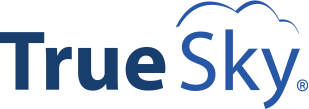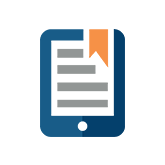Why an ERP Shouldn’t Be Your Only Data Source for Budgeting and Forecasting
 It today’s digital age, when data is required in real-time, operating without an enterprise resource planning system (ERP) is almost unheard of. An ERP system enables you to achieve greater visibility, work more quickly, and respond more accurately to changes. However, while an ERP tracks your many business resources, from cash and raw materials to purchase orders and payroll, it shouldn’t be your only source for budgeting and forecasting data.
It today’s digital age, when data is required in real-time, operating without an enterprise resource planning system (ERP) is almost unheard of. An ERP system enables you to achieve greater visibility, work more quickly, and respond more accurately to changes. However, while an ERP tracks your many business resources, from cash and raw materials to purchase orders and payroll, it shouldn’t be your only source for budgeting and forecasting data.
Why? An ERP houses historical data, but not sales or order data, and you want to be able to predict future revenue. This is especially important when we think about forecasting.
Important data exists in other systems too. When you’re establishing a budget, to get the most accurate data and a full view of what is happening, you should be integrating all of the available data possible. The same goes for forecasting – if you want to be able to envision future revenue to the closest possible fraction, you need to be looking at the full picture.
This includes data from:
- CRM – sales pipeline, sales forecasts
- HR – salaries, compensations, bonuses, employee-related information
- POS systems, store data
- Warehouse management system
- Order entry system
Another reason why an ERP should not be your only source for data is simple: spreadsheets. Most companies still used Excel, or something similar to Excel, for budgeting and forecasting. This is because Excel has proven to be the most effective and efficient root system. Your ERP can’t integrate those spreadsheets – making the process difficult if you’re looking only to the ERP.
When you rely solely on an ERP, you may miss important numbers – numbers that are crucial for predicting future revenue. An ERP just isn’t flexible enough to manage this is. It is not flexible enough to accommodate changes in business conditions which are the keys to forecasting future business operations, nor is it flexible enough for advanced financial reporting.
Instead, your ERP system should be used as part of an overall budgeting and forecasting process – after all, you can’t accurately budget or forecast without those numbers either. By integrating the data housed within your ERP with that of your various other systems, you will be better positioned to create a more viable budget.
It is undeniable that an ERP system makes your financial strategies more efficient. Better control is essential for success. That being said, it works best when used in collaboration with other systems and information. This is the only way to get a clear view of what’s happening at every level.
At True Sky, our Excel-based corporate management system makes it easy to integrate ERP, CRM, HR, and POS data into your spreadsheets, thereby improving your overall budgeting and forecasting process. To find out more, please call 1 855 878 3759 today or visit www.truesky.com.



